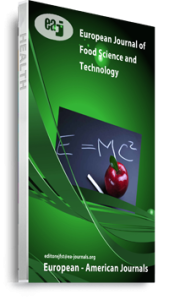The microbial quality of spiced watermelon juice and the effect of pasteurization on the juice were investigated. Watermelon juice samples were analyzed according to standard bacteriological methods. The present study indicated significant reduction in microbial activities in all the juice samples under review. However, the rate of decline in the samples was less in refrigerated samples as compared to that stored at ambient temperature. The result for aerobic mesophilic count for the different watermelon juice samples increased (unpasteurized) from 3.22× 102 to 5.31 × 102 cfu/ml, while the pasteurized watermelon juice samples showed a decreased microbial load from 0.05 × 102 to 0.07 × 102 cfu/ml. Results pre and post pasteurization of the juices showed zero (0) count for mould and E.coli, while total coliform ranged from <3.0 × 102 to 9.0 × 102 for the pasteurized and unpasteurized samples (MPN Index). 0Brix for all the samples showed a decreasing trend, with the control (sample E) having the highest brix value. As storage progressed over a period of four week, brix values were higher at refrigerated temperature than at room temperature storage for all the samples. Refractive index decreased with storage at room temperature for all samples but remained relatively stable at refrigeration temperature. The pH of samples decreased with storage and time over a period of four weeks, with the spiced samples having lower pH values, while total titratable acidity (TTA) increased over the same period. The study revealed that the combined effect of spice, pasteurization and refrigeration positively affected the shelf life of the juice samples.
Keywords: Juice, Microbial Analysis, Shelf-Life, Water Melon

